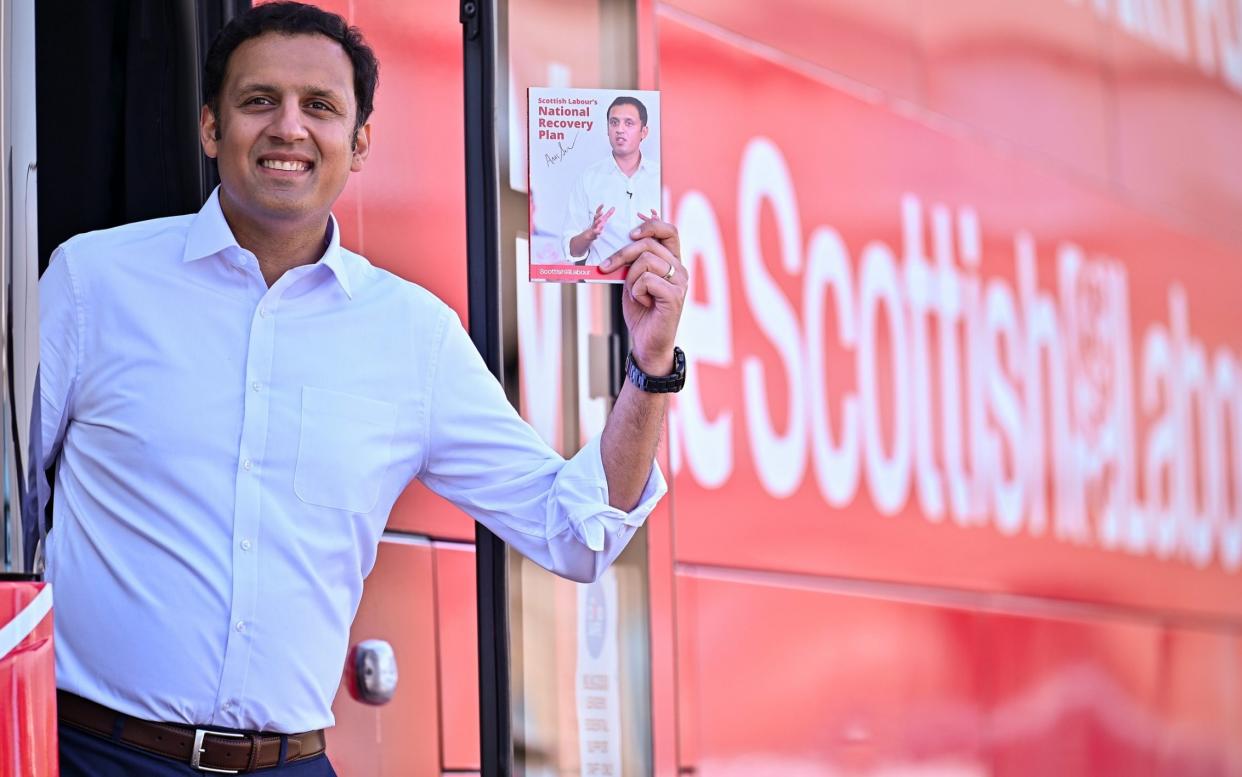It's 'fair' to call me a private education hypocrite, says Scottish Labour leader

Anas Sarwar has admitted it is a “fair” to call him a hypocrite after he unveiled plans for an attack on private education despite sending his own children to a fee-paying school.
Scottish Labour’s manifesto, published Thursday, calls for the charitable status of private schools to be revoked and for any public sector backing for them to end.
The document states that such a policy would serve as “a contribution towards achieving a more socially just and inclusive society”.
Mr Sarwar, the party leader, sends his own children to Hutchesons’ Grammar School in Glasgow, which he also attended, and currently charges annual fees of up to £12,924 per pupil.
Asked whether he was a “hypocrite and humbug” for sending his own sons to a private school despite his own party presenting them as a force for social injustice, the father-of-three admitted criticism of him was valid.
“I'm open about the fair question and the fair criticism that people make around the decision that my wife and I made for our children,” he said.
“I want every child to have opportunity and that's why we put our education comeback plan at the heart of this manifesto.
“There are different forms of inequality and prejudice that my children will face that other children won’t face, [but] that still means I accept the criticism around the choice I've made for my children's education.”
Mr Sarwar also insisted that his support for the Union was “unequivocal” dispute pledging to “double down” on his attempt to win back support from pro-independence voters in the final fortnight of the Holyrood campaign.
The manifesto includes a commitment not to support an independence referendum, warning a repeat vote would cause economic instability and “constitutional turmoil”.
Mr Sarwar claimed the “political bubble” was wrong to focus on the constitution and that, despite failing to so far make a breakthrough in opinion polls, his plan to appeal across the constitutional divide was working.
He was introduced at the manifesto launch by a business owner from Glasgow who said she was a lifelong SNP voter before switching to Labour.
“I'll consider each issue on its merits,” Mr Sarwar said about potentially offering support to Nicola Sturgeon's SNP in the next parliament.
“But does that mean I'm equivocating on the constitutional position? Absolutely not. I don't support independence, and I don't support a referendum.”
Labour rebranded its manifesto a ‘national recovery plan’ and proposes handing every adult £75 to spend on high streets and offering state subsidised holidays in Scotland to boost the ailing tourism industry.
The party did not propose immediate increases to income tax, however. It said if there is a need to raise revenues in the next term, rates should rise for those earning £100,000 or more.
The better off could also be hit if Labour gets its way on council tax, which the party said should be scrapped and replaced with “a fairer alternative based on property values and ability to pay”.
The party backed a major programme to get NHS cancer treatment back on track, after screening programmes were halted due to the pandemic, raising carers' pay to £12 per hour and new investments on mental health services.
On education, the party proposes an individual catchup plan and a personal tutoring programme for state pupils.
John Edward, director of the Scottish Council for Independent Schools, said it was not his organisation’s role to enter party politics but pointed out that Labour’s manifesto was wrong to claim that a review into business rates had recommended removing schools’ charitable status.
He added: “An active debate on all aspects of Scottish education is welcome. Independent schools will remain a vocal, successful, just, inclusive and supportive part of that as long as families and pupils want them to.
“All the evidence – especially over the pandemic period – is that choice, diversity and excellence in Scottish education is very welcome.”

 Yahoo News
Yahoo News 
